A symposium titled “Using HRQoL data from children and youth to strengthen HTA. What are the barriers? How can we improve current practice?” was held at this year’s European ISPOR in Barcelona. The well-attended symposium was intended to encourage thinking and research to expand and strengthen the methods and evidence base for HTA in the pediatric space and presented a range of perspectives, with speakers from HTA bodies, academia, and industry. The symposium was funded by the EuroQol Research Foundation and moderated by Prof. Nancy Devlin of the University of Melbourne.
Prof. Devlin got the ball rolling by pointing out that an increasing number of validated preference-weighted generic instruments are available to measure and value children’s health for use in economic analysis. One example is the EQ-5D-Y-5L, which was recently released as an official version by the EuroQol Group and is now available for use free of charge for non-commercial organisations. She also noted that 17 country-specific value sets are now available or close to completion for the original EQ-5D-Y-3L, that the new HUPs measure for very young children can be linked to HUI3 preference weights, or that a preference-weighted version of PedsQL is close to completion. Nevertheless, despite the increasing availability of instruments and value sets, she noted that several authors have highlighted that submissions to HTA bodies in the pediatric space use inconsistent approaches, often employing adult measures and weights, even though child-specific instruments are available, and that there are “…considerable gaps in the way (pediatric) valuation weights are used and reported in CEA” [Neppelenbroek et al 2023] and limitations in HRQoL data.
After Prof. Devlin’s introduction, Dr. Koonal Shah from NICE described some of the issues faced by NICE, such as the use of adult instruments and values when measuring and weighting children’s health, and the use in some studies of values from clinicians in lieu of values from the children themselves, or their parents and caregivers, or members of the adult general population. He also reviewed NICE’s position on methods guidance for those wishing to submit product dossiers to NICE, indicating that the academic literature is not considered sufficiently mature to recommend specific measure(s) and value set(s) for children and young people, but that measures used should be generic and have been shown to “have good psychometric performance in the relevant age ranges”. It is also important to report who completed the measure, whether the child themself or adults on behalf of the children. Additional challenges faced by NICE included issues such as no HRQoL data being collected in trials, or collected with unsuitable instruments, or learning difficulties making it difficult or impossible to collect data directly from patients, while queries that NICE receives frequently include questions around how to measure HRQoL in very young ages, or how to account for issues not captured by instruments, e.g. the ability to socialise and engage with other children. He finished on a positive note by pointing to the substantial amount of research that has been done or is on-going into issues such as who should value children’s health [Powell et al] and how [Ratcliffe et al. Devlin et al], which suggests that there are active efforts to address the challenges faced by HTA bodies and others working in the field of HTA in pediatrics.
Dr. Shah was followed by Dr. Saskia Knies of the Dutch National Health Care Institute who started by mentioning some similar challenges faced by her Institute as were mentioned by Dr. Shah. These include the lack of QoL data from clinical trials, despite such data being considered a very relevant outcome for decision-making; difficulties with patient selection, and the use of non-validated or very disease-specific instruments, which makes it difficult to compare results across conditions and treatments. To help address some of these issues, the updated Dutch health economic guidelines were published in January 2024 and since October 2024 it is mandatory to follow the guidelines for reimbursement dossiers from the pharmaceutical industry. With regard to pediatric assessments, Dr. Knies noted that the guidelines stipulate that, when considered relevant, the QoL of caregivers should be included in those assessments using scenario analysis, and that EQ-5D-Y-3L is the recommended generic measure for use in patient populations aged 8-12, though its use could potentially be expanded above that age range if appropriate in specific studies. Dr. Knies indicated that the guidelines are intended to improve consistency across submissions and take into account the available value sets in the Netherlands, as well as the need to use generic instruments to provide comparability across assessments. She also noted several challenges that researchers and HTA bodies are still struggling with, including the timing of measurement, especially in fluctuating conditions, whether to use longer or shorted recall periods, and the fact that QoL on the worst days is often missing.
The third panelist to present was Dr Wendy Ungar, the Canada Research Chair in Economic Evaluation and Technology Assessment in Child Health. Dr. Ungar started by noting that economic analyses within the pediatric space have increased substantially in recent years, particularly cost-utility and cost-effectiveness analysis. She also noted, though, some of the barriers to pediatric utility estimation, such as the lack of validated preference-weighted HRQoL instruments and value sets for very young children or the fact that utilities can vary by instrument and tariff set used, which can lead to conflicting results for decision-making. One way in which Dr. Ungar suggested that assessment of pediatric treatments could be improved is by looking more carefully at family and caregiver spillover effects and taking a family perspective in such assessments. She pointed out that best practice guidelines are now available to help support such an approach [ref: the SHEER guidelines – Henry E et al] and suggested some steps by which such research could be enhanced including validation studies for reworded, recalibrated and new instruments and the exploration of the use of additive or multiplicative models for combining family members’ utilities, and statistical household functions.
The final speaker in the Symposium was Fleur Chandler, a health economist, clinical research and market access specialist who had previously been head of Market Access for the UK and Ireland at Sanofi and Head of Global Health Outcomes (Respiratory) at GSK. She is also the mother of a young adult with Duchenne Muscular Dystrophy. Fleur took a holistic view when discussing challenges to using PRO measures in pediatric populations, discussing the development, implementation, response to, analysis and interpretation of results, and how they are used in decision-making. She remarked on challenges such as the rapid developmental pace of children as they grow and the need for different measures at different ages, as well as the difficulties of achieving sufficient sample size for studies. As to what could be done better, she noted the need for guidance from decision makers, being able to use data from both clinical trials and RWE settings, the need for long term data collection, reassurance for patients and parents on how data would be used and interpreted, and the imperative for researchers and decision-makers to understand the implications for patients and parents of being involved in research.
All in all, the symposium provided much food for thought for those who attended and will hopefully contribute to advancing the measurement and valuation of health in pediatric populations. The ERF would like to thank Prof. Nancy Devlin for moderating the session and the panelists for their contribution to making the symposium a success. The slide sets from the Symposium are available at below.
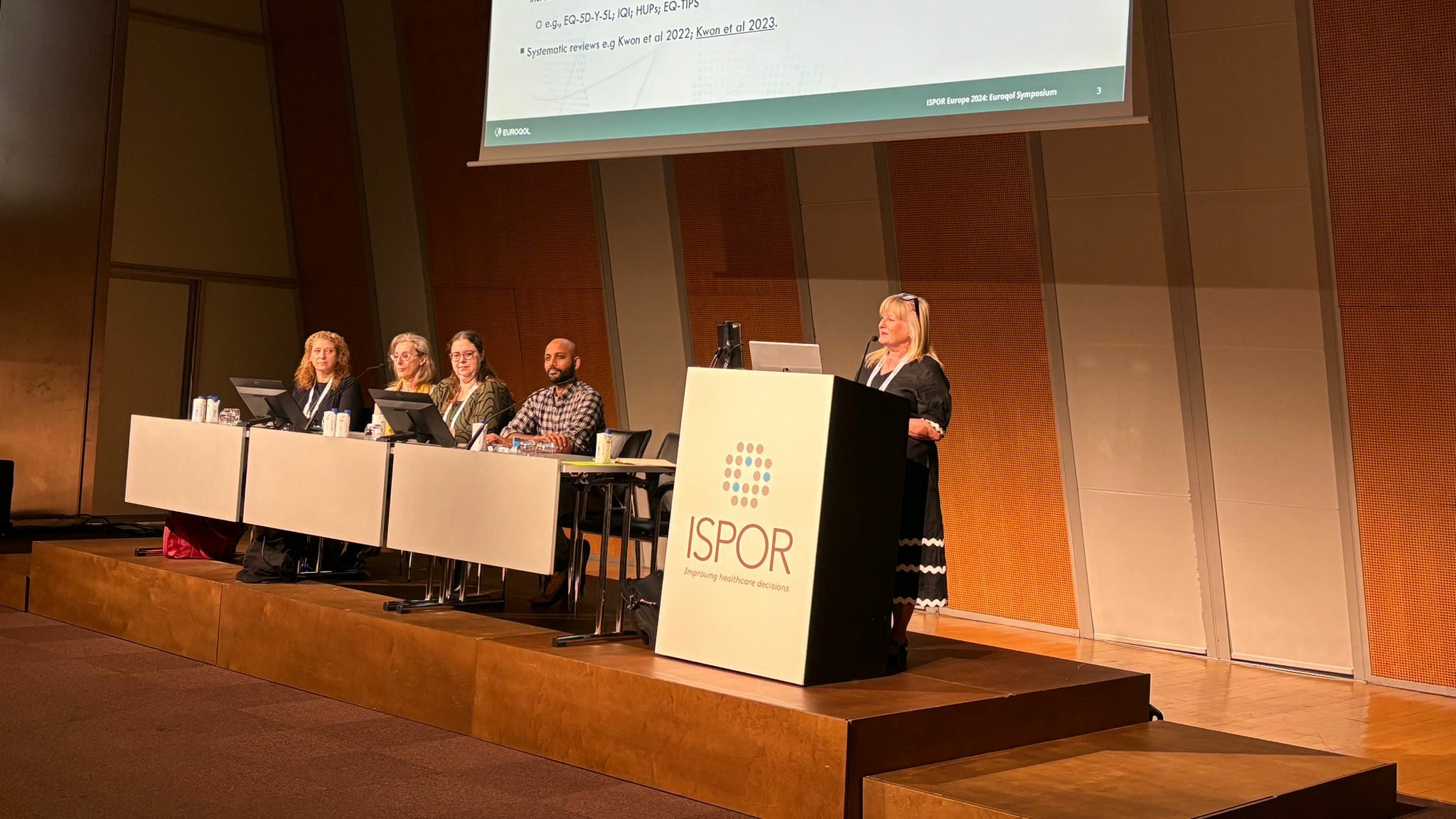
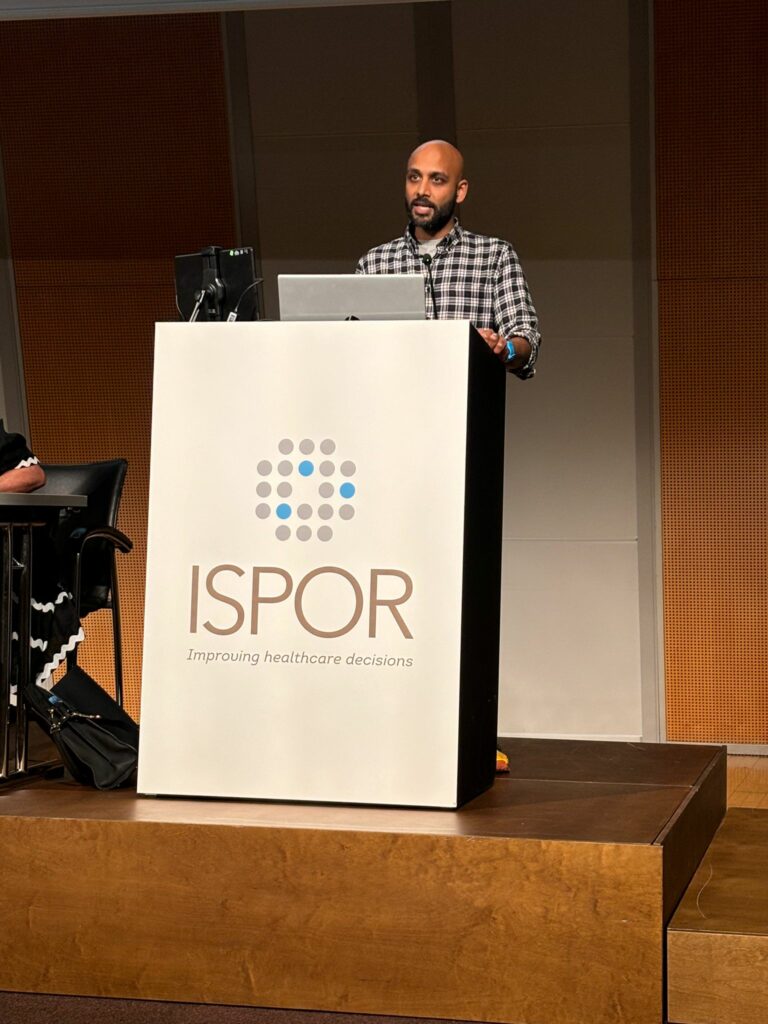
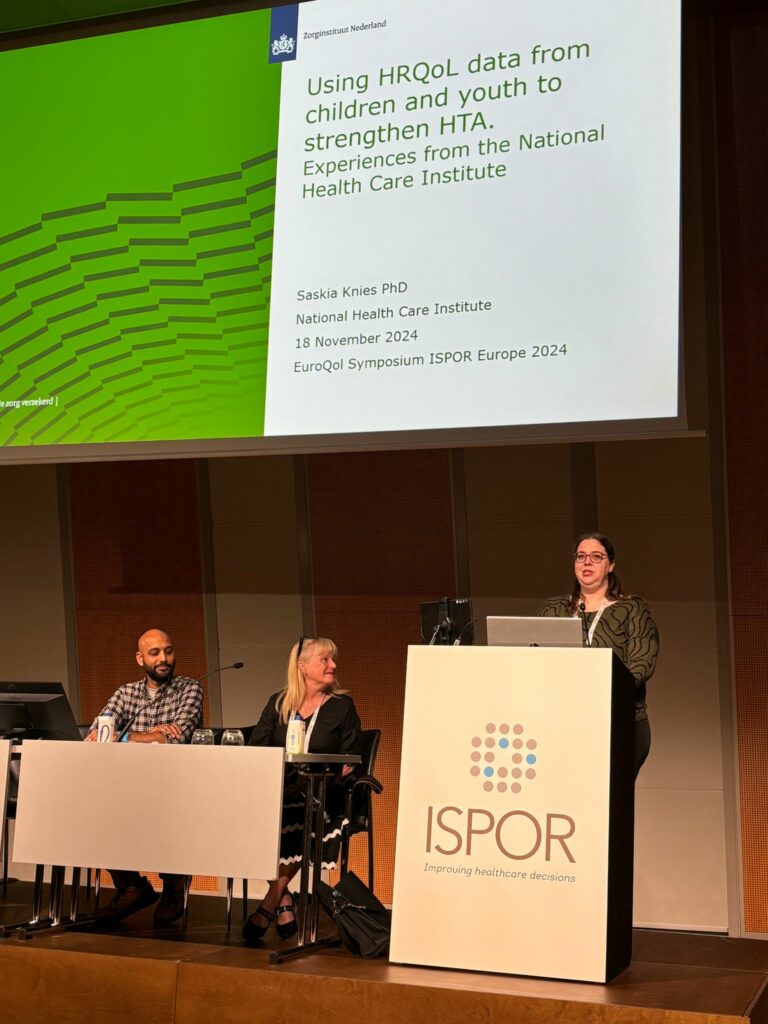
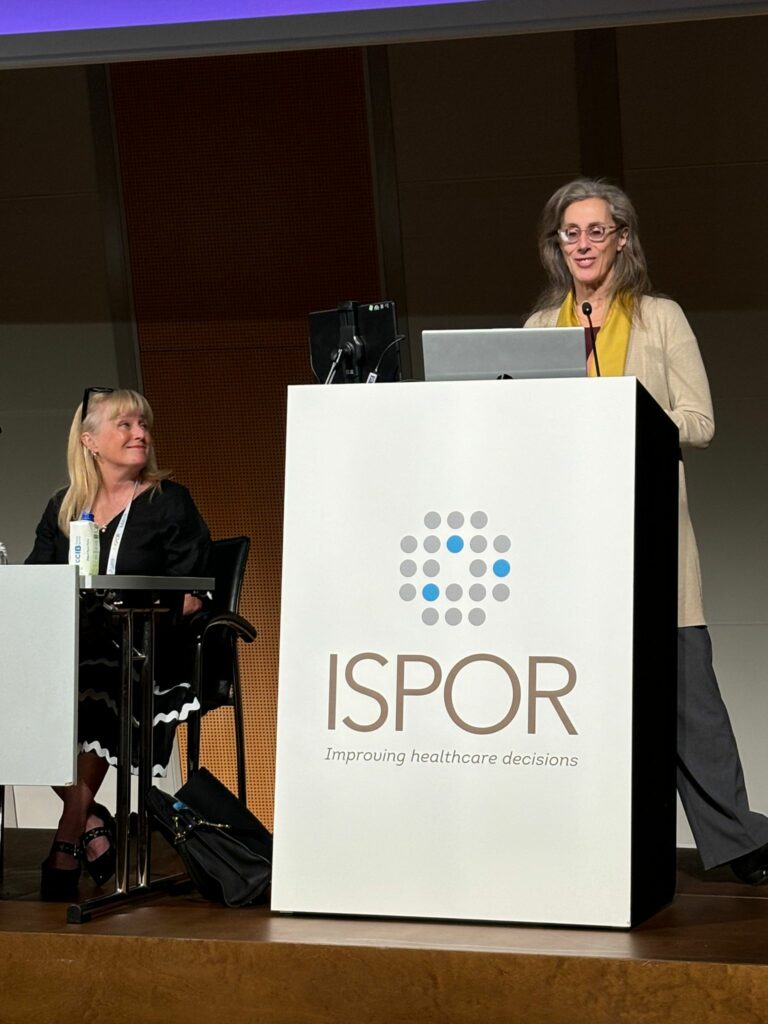
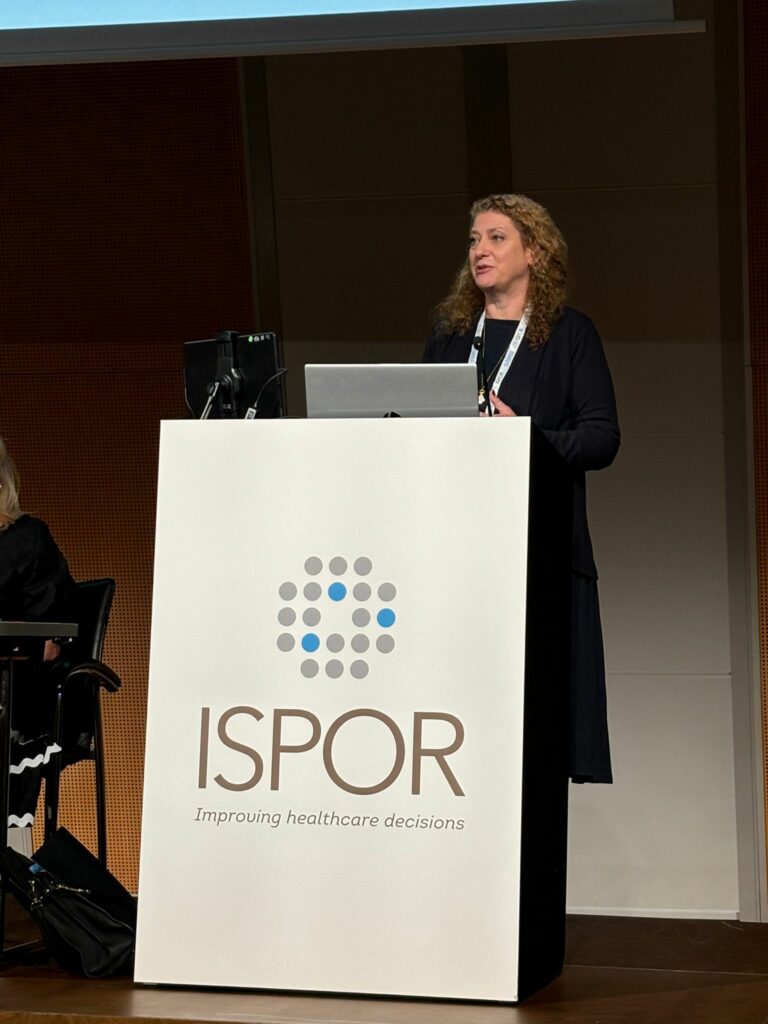
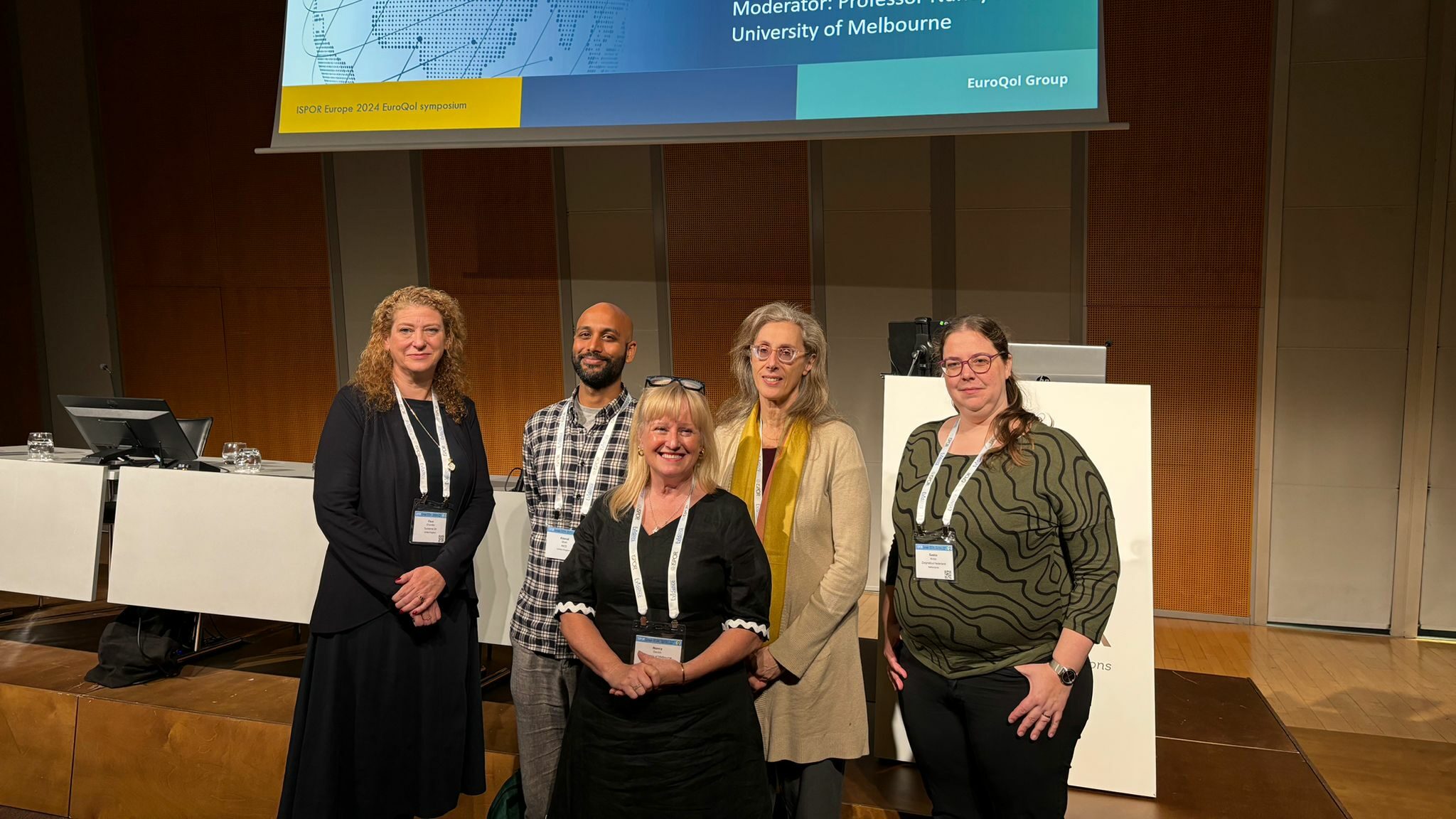
Presentation
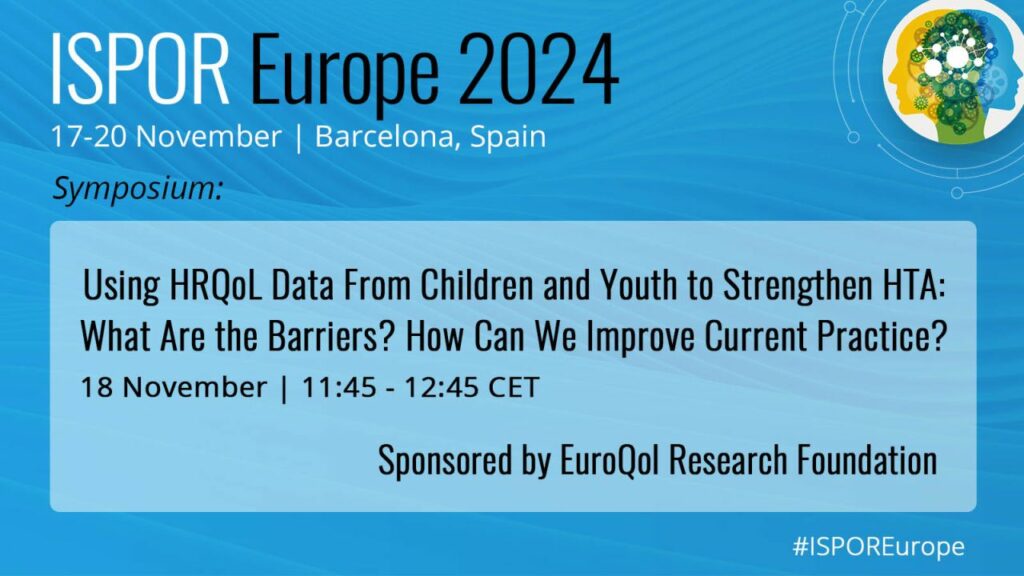
Date: November 18, 2024
Time: 11:45 am CET
Type: Archive event
Location: Barcelona
More information
1. Introduction_Moderator_Nancy Devlin: Open website
2. Speaker_Koonal Shah: Open website
3. Speaker_Saskia Knies: Open website
4. Speaker_Wendy Ungar: Open website
5. Speaker_Fleur Chandler: Open website